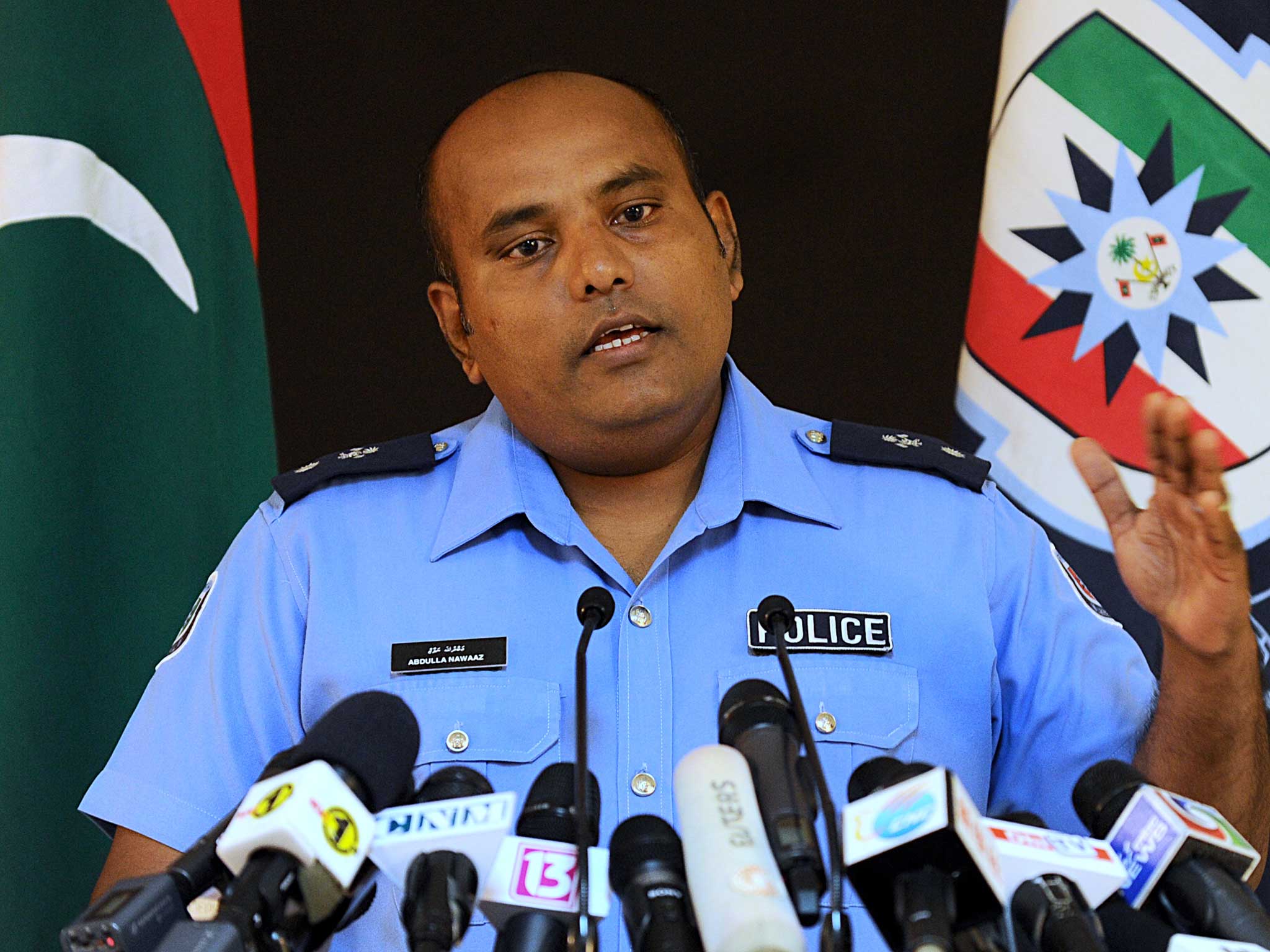'A dark day for democracy': Fresh constitutional crisis as election halted by police in Maldives
Island nation plunged into new crisis after presidential poll halted amid accusations that candidates are loyal to former dictator

Your support helps us to tell the story
From reproductive rights to climate change to Big Tech, The Independent is on the ground when the story is developing. Whether it's investigating the financials of Elon Musk's pro-Trump PAC or producing our latest documentary, 'The A Word', which shines a light on the American women fighting for reproductive rights, we know how important it is to parse out the facts from the messaging.
At such a critical moment in US history, we need reporters on the ground. Your donation allows us to keep sending journalists to speak to both sides of the story.
The Independent is trusted by Americans across the entire political spectrum. And unlike many other quality news outlets, we choose not to lock Americans out of our reporting and analysis with paywalls. We believe quality journalism should be available to everyone, paid for by those who can afford it.
Your support makes all the difference.The Maldives has been plunged into a fresh constitutional crisis after police halted a presidential election due to be held today and surrounded the offices used by officials for the poll.
On what was described as a “dark day for democracy”, police officers claimed that they would not allow the vote to proceed as it would be in breach of regulations issued by the country’s highest court.
But as protesters took to the streets in the capital of Malé, the Elections Commissioner Fuwad Thowfeek told reporters that the police, who mutinied against former president Mohamed Nasheed last year and forced his resignation, had “overstepped their authority”. He added: “We cannot proceed with the election if police are obstructing it.”
The halting of the vote is the latest drama since Mr Nasheed, who won the Maldives’ first free elections in 2008, was ousted amid violent protests in February 2012. He and his supporters said the “coup” was organised by the former dictator Maumoon Abdul Gayoom.
Under international pressure, the next government, led by President Mohammed Waheed Hassan, agreed to organise elections and, in a poll held on 7 September, Mr Nasheed secured the highest number of votes.
He then appeared to be well placed ahead of a run-off scheduled for 28 September. However, this was halted by the country’s Supreme Court after claims by two other candidates that there had been irregularities, despite election observers saying that the voting had been fair. To resolve the crisis, new polls were to take place today.
Today, a spokesman for Mr Nasheed claimed the country was now in a “confusing” situation. “They [the police] don’t want an election,” he said. In Malé, there were calls for the chief of police, Abdulla Nawaz, to be removed. But Mr Nawaz told a press conference that his officers had acted to stop the election because only one candidate had signed a voter register list that had to be approved and signed by all parties.
While Mr Nasheed’s Maldivian Democratic Party (MDP) signed the list, two of his rivals did not, claiming they had not had sufficient time to verify the data. Those two parties, the Jumhooree Party (JP) and the Progressive Party of Maldives (PPM) did not comment on yesterday’s dramatic developments.
The PPM’s candidate is Abdulla Yameen, the half-brother of Mr Gayoom. Meanwhile, the JP is headed by Gasim Ibrahim, a tourism and media tycoon who once served as Mr Gayoom’s finance minister.
Many observers believe the former dictator is influencing events from the sidelines – a claim he has denied – and institutions, including the judiciary, police and public services, are perceived as dominated by those loyal to Mr Gayoom.
Mark Lynas was the climate change adviser to former president Mr Nasheed. He said: “President Nasheed represented a real step toward modernity and progress in the Maldives. His removal and the events of today mean it’s slipping back into a dictatorship.
“The supreme court is stacked with appointees from the Gayoom dictatorship era. They are hand in hand with the police. The police force holds the real power in the Maldives – much stronger than the army.”
Farah Faizal, is the former Maldives high commissioner to the UK and a representative of the MDP. She said: “The current regime doesn’t want an election because they know Nasheed will have a majority win.
“The international community must issue a travel ban on the regime, and reimpose economic sanctions, as they did on Gayoom in 2004. Unless measures are imposed on the current regime, there’s no chance of a free and fair election.”
Join our commenting forum
Join thought-provoking conversations, follow other Independent readers and see their replies
Comments